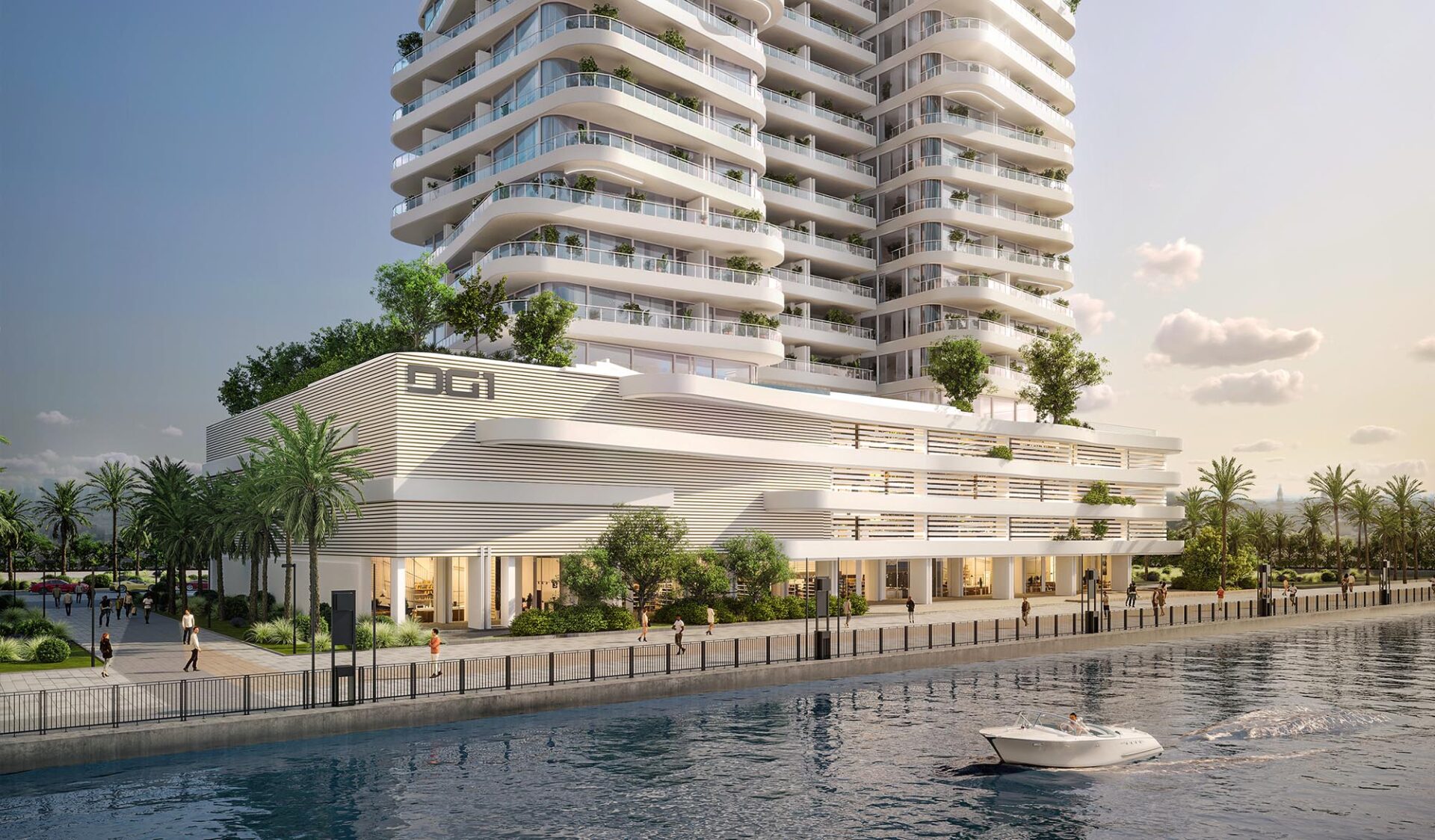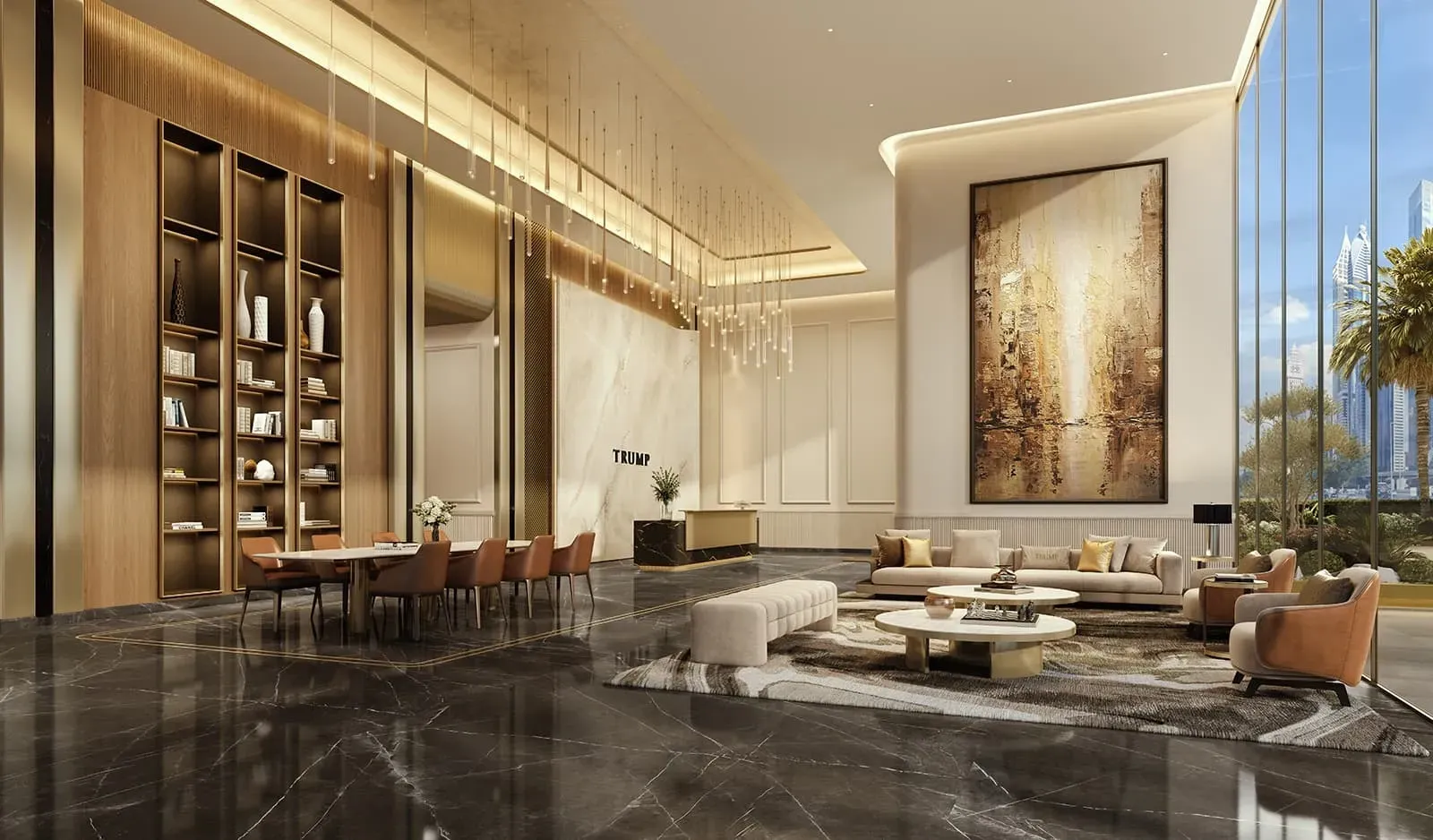Dubai Real Estate ROI in 2025: Rental Yields vs. Capital Appreciation
Dubai’s real estate market is dynamic and full of opportunity, presenting investors with multiple pathways to maximise returns. Whether you’re looking for consistent rental income or aiming for significant capital growth, striking the balance between these two is essential for making informed investment decisions.
But how do you decide which strategy suits your goals best? Should you focus on Dubai rental yields or capital appreciation? To address all these questions and queries, we’ll delve into the latest trends and insights shaping Dubai’s property landscape in 2025. At DarGlobal, we leverage these insights to design projects that align perfectly with investors’ goals, delivering value both now and in the future. Let’s dive in!!
Key Takeaways:
- Dubai offers rental yields of up to 11.2% and strong capital appreciation, making it a top choice for both income- and growth-focused investors.
- Dubai Marina, Business Bay, and Jumeirah Golf Estates deliver high ROI, while emerging zones offer strong growth potential.
- In 2025, 210,000 new units priced 10–15% lower create ideal entry points amid a market recalibration.
- Define your strategy to generate cash flow through rental yields, build long-term value through appreciation, or combine both for maximum returns.
- Diversify across various property types and locations, and time your investments to align with market trends, thereby mitigating risk.
- Choose DarGlobal for high-ROI properties in prime zones, designed to deliver income and long-term growth.
Understanding ROI in Dubai’s Real Estate Market
Dubai real estate ROI continues to be a magnet for global investors, thanks to its tax-free environment, strategic location, and high rental yields. Affordable communities like Dubai Investment Park are leading the charge with impressive rental ROIs of up to 11.2%.
The luxury segment also remains lucrative. Communities like Jumeirah Golf Estates and Dubai Marina attract high-net-worth individuals and yield returns near 7.48%, driven by lifestyle appeal and capital appreciation potential.
With over 210,000 new housing units expected to hit the market by late 2025, a price correction of around 10–15% is forecasted. However, experts still view this as a market recalibration rather than a downturn.
So, is it a good time to buy property in Dubai? For many investors, the answer is yes. Investors who act strategically now are well-positioned to benefit from both rental income and long-term capital gains.
What is ROI and How is it Calculated?
ROI (Return on Investment) is a metric used to evaluate the profitability of an investment. In real estate, it helps investors understand how much profit they’ve made, or can expect to make, relative to the cost of the property.
Basic ROI Formula:
- ROI = (Net Profit/Total Investment Cost)×100
- Net Profit = Total rental income or resale value – All expenses (maintenance, taxes, mortgage, etc.)
- Total Investment Cost = Purchase price + Additional costs (closing fees, renovation, etc.)
This formula provides a percentage that indicates the return you’re earning for every dirham invested.
Types of ROI in Real Estate
ROI in real estate isn’t one-size-fits-all. Depending on the type of investment, ROI can be measured in different ways:
1. Capital Appreciation
Capital appreciation in Dubai refers to the increase in a property's value over time. It’s a long-term return on investment (ROI) gained when property prices rise, allowing investors to sell at a profit. Market demand, location, and infrastructure development are key drivers behind this form of return.
2. Rental Yield
Rental yield is the annual rental income a property generates, expressed as a percentage of its purchase price. It helps investors understand ongoing income potential. High-yield properties are especially attractive in busy rental markets where consistent tenant demand ensures steady monthly cash flow.
3. Cash-on-Cash Return
Cash-on-cash return measures the annual income earned relative to the cash invested. It’s especially useful for properties bought with financing, as it excludes mortgage amounts. This ROI provides investors with a clearer picture of actual income versus just paper returns or asset appreciation.
Key Factors Affecting ROI in Dubai
When investing in Dubai, several key factors can significantly impact your return on investment (ROI). Understanding these elements helps ensure smarter financial decisions and long-term profitability. Key factors include:
1. Location
The location of your property in Dubai significantly influences its return on investment (ROI). Prime areas, such as Downtown or Dubai Marina, attract higher demand, better rental income, and more substantial resale value. Also, proximity to transportation, landmarks, and business hubs significantly boosts investment returns.
2. Property Type
The type of property, whether a villa, apartment, or serviced unit, impacts its earning potential. Luxury villas may experience higher appreciation, while studio apartments tend to attract consistent renters. So, selecting the right property type that aligns with market demand can significantly impact your overall ROI strategy.
3. Market Conditions
Overall market health, including supply-demand balance, interest rates, and developer activity, shapes ROI. A buyer’s market may offer good deals, but resale or rental returns depend on timing and trends. Staying updated helps investors make well-informed, high-return decisions.
Best Locations in Dubai for High ROI
DarGlobal strategically selects premium locations across Dubai that offer strong investment potential. These areas deliver a high return on investment (ROI) due to their luxury appeal, robust infrastructure, and growing demand. Our top locations include:
1. Dubai International Airport
DG1 Living offers excellent rental yields due to its strategic location near Dubai International Airport and key business hubs. With modern amenities and strong tenant demand, it’s ideal for investors seeking consistent income and steady property value growth.

2. Business Bay
Trump International Hotel & Tower Dubai blends luxury living with high rental demand. Located in Business Bay, its premium services and prime location attract affluent tenants, making it a top choice for investors focused on high returns and capital appreciation.

3. Jumeirah Golf Estates
D-Villas at Jumeirah Golf Estates (JGE) provide a unique investment opportunity combining luxury villa living with access to world-class golf courses. High rental demand from expatriates and professionals supports attractive ROI and potential for significant capital growth over time.
Strategies to Maximise Your Real Estate ROI
Maximising your Dubai real estate ROI requires a strategic approach that balances short-term gains with long-term growth. Here are key strategies to help you achieve the best possible returns:
1. Conduct In-Depth Market Research
Understanding the local market enables you to identify trends, price fluctuations, and tenant preferences. Researching neighbourhoods, demand patterns, and future developments lets you make informed decisions, reducing risks and improving your chances of buying properties with strong growth and rental potential.
2. Invest in Up-and-Coming Areas
Target emerging neighbourhoods that show signs of growth, such as new infrastructure, businesses, or lifestyle hubs. These areas often offer lower entry prices and high potential for appreciation. Early investments in this area can yield significant returns as it develops and attracts more residents.
3. Diversify Your Portfolio
Spreading investments across various property types and locations helps reduce risk and balance income streams. Combining residential, commercial, or short-term rentals helps protect you from market fluctuations and taps into various growth opportunities for a steadier overall return on investment (ROI).
Risks and Considerations
Dubai’s real estate market holds strong potential, but investors should be mindful of key risks. Market shifts, regulatory changes, and global events can all impact returns. For example, property prices dropped nearly 8% during the 2020 pandemic, showing how external factors affect ROI.
Moreover, oversupply in certain areas may lead to longer vacancies or lower rental income. While residential properties typically offer returns of 5%–8%, commercial units can reach up to 10%, although they often come with higher costs and more complex management.
Therefore, it's also crucial to factor in service fees, legal costs, and evolving regulations. An informed, diversified strategy, supported by expert guidance, can help protect your investment and maximise long-term gains.
Conclusion
As you navigate Dubai’s real estate ROI in 2025, remember that there is no one-size-fits-all investment strategy. Your choice between focusing on rental yields or capital appreciation should align with your financial goals, risk appetite, and investment horizon.
At DarGlobal, we’re here to help you find the right property in the correct location so that you can invest in a good property. Thus, if you’re looking for steady monthly income, rental yields in high-demand areas like Dubai International Airport or Business Bay could be your ideal route. But if long-term value growth excites you more, investing in high communities like JGE might offer the capital appreciation you’re after. So, ready to book your next investment? Then visit our website today!
FAQs
1. What is the return on investment for rental properties in Dubai?
Return on investment rental property varies but typically ranges between 5% to 7% annually. Factors like location, property type, and market demand heavily influence returns, making research essential for accurate expectations.
2. How much rental income can I expect from a 1 BHK in Dubai?
A 1 BHK in Dubai can generate monthly rental income between AED 35,000 to AED 75,000 annually, depending on its location, quality, and nearby amenities. Prime areas generally offer higher rental yields.
3. Does Dubai real estate offer good capital appreciation?
Dubai's real estate has demonstrated strong capital appreciation potential, particularly in emerging communities. While prices fluctuate, strategic investment in key areas often leads to long-term growth and wealth-building opportunities.